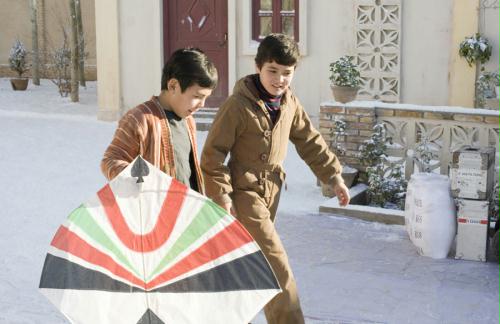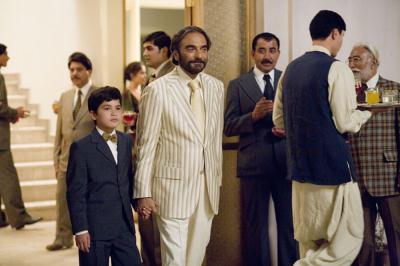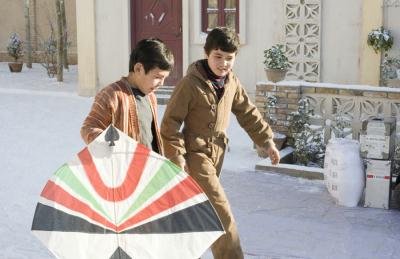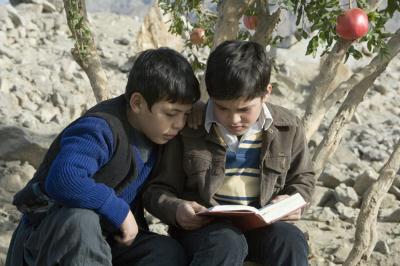''Kite Runner'' to be screened at the Smith
With its universal themes of honor and redemption,the big-screen version of Khaled Hosseini’s acclaimed 2003 novel,"The Kite Runner,"about the doomed friendship of two Afghan boys, is not only faithful to the book but enhances the narrative with resonant visuals.
Both the book and the film tell the decade- and globe-spanning story of Amir, an Afghan-born novelist who fled to the United States as a boy following the Soviet invasion of his homeland. The first half of the movie is an extended flashback to his happy childhood in Kabul, where he and his best friend Hassan (who also happens to his servant) spend their days indulging in their favorite pastime: kite fighting.
Their friendship undergoes a profound shift. Not long after, Amir himself is forced to flee when Russian soldiers march through the streets of Kabul.
At this point, the narrative shifts into the present tense. Amir receives a phone call from one of his father’s friends asking him to return to the country of his birth. It seems that Hassan survived the invasion, only to be executed by the Taliban, which seized power after the Russians left. But Hassan had a son, Sohrab, who was taken to an orphanage and hasn’t been seen since. Although he’s initially reluctant to embark on a rescue mission, Amir is compelled to return to Kabul.
Sensitively directed by Marc Forster ("Monster’s Ball," "Finding Neverland," "Stranger Than Fiction"), the saga provides an especially good opportunity to see Middle Eastern actors in roles well away from the current standards of villainy. Here, they’re in a story of character and emotion universal in its depiction of humanity that, in its thematic construction, gives the impression of a memoire. Its lack of a religious agenda in a middle east context is both refreshing and a noteworthy commitment to the unburdened language of art.
Forsters film is a rare canvas among Hollywood studio productions. It is an exemplary piece of storytelling ripped quite beautifully from Hosseinis famous book. But what distinguishes the film is a backdrop of raw and ruinous cultural events.
Class distinctions, brotherhood, tradition and pride take turns as elemental ingredients of the finely crafted drama, but what you’re most likely to take away from it, and find most memorable, is the level of emotion contained in the story of a man facing his demon and seizing the chance to rebuild his character and restore his self-respect. It’s a difficult journey but you know it when you get there -- absolution for past errors in judgement.
"The Kite Runner" is a beautiful film about human ugliness-spinelessness, small-mindedness, selfishness, and shame -- and the possibility of moving beyond it all to a new place of joy, one thats all the more meaningful for being so hard won. A lyrical and understated portrait of life’s journey come full circle within the context of the immigrant experience, "The Kite Runner"is rated PG-13 and has a running time of two hours, seven minutes.
Images

Date and Time
Friday Mar 14, 2008 Tuesday Mar 18, 2008
March 14th, 15th, 17th, & 18th at 7pm
Location
Smith Opera House82 Seneca StGeneva, NY
Fees/Admission
$5 general admission$3 for students & senior citizens
Website
Contact Information
315-781-LIVE (5483) or toll-free 866-355-LIVE (5483)
Printed courtesy of flxchamber.com/ – Contact the Finger Lakes Area Chamber of Commerce for more information.
One Franklin Square, Suite 202, Geneva, NY 14456 – (315) 789-1776 – info@flxchamber.com




